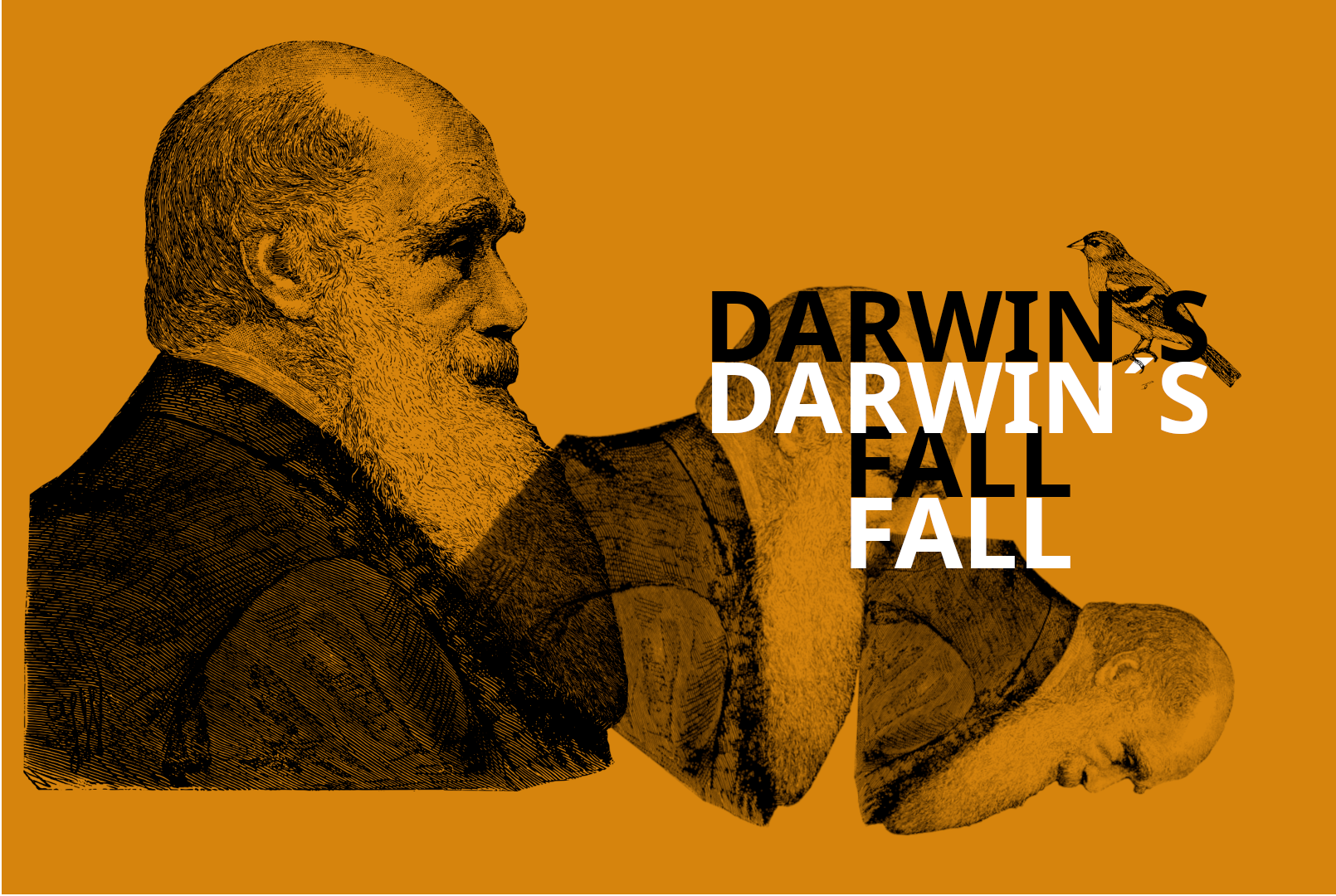
De nuevo un saludo muy grande a todos los amigos de YouHive y, de nuevo, un saludo muy especial a @avdesing a @elbuhito y a @mipiano, que espero que encuentra algo de interés en esta publicación.
Esta es mi segunda participación en la iniciativa dedicada a los podcasts: **Podcasts are now available on** [**YouHive!!** 🎤😃](https://peakd.com/hive-135183/@youhive/podcasts-are-now-available-on-youhive). Cuando escribo esto, desconozco si cuando publique esta iniciativa estará caducado o continuará activa... pero aquí va.
De nuevo, no no tengo ninguna de intención creaar ninguna polémica presentando la llamada "tercera vía" [ni creacionismo ni Darwin] como explicación del origen de las especies sobre este planeta llamado Tierra.
Mi único deseo es mostrar que, probablemente, mucho de lo que nos cuentan (de contar cuentos) en nombre de la "ciencia" o no es ciencia o no es la verdad absoluta que se dice que es.
Invito a participar en esta inciativa y en las proximas a: @filoriologo @abrunet @angeluxx
---
>Once again, a big hello to all my friends at YouHive, and a special hello to @avdesing, @elbuhito, and @mipiano, who I hope will find something of interest in this post.
>This is my second contribution to the podcast initiative: **Podcasts are now available on** [**YouHive!!** 🎤😃](https://peakd.com/hive-135183/@youhive/podcasts-are-now-available-on-youhive). As I write this, I don't know if this initiative will have expired or still be active when I publish it... but here goes.
>Once again, I have no intention of creating any controversy by presenting the so-called “third way” [neither creationism nor Darwinism] as an explanation for the origin of species on this planet called Earth.
>My only desire is to show that, probably, much of what we are told (storytelling) in the name of “science” is either not science or not the absolute truth that it is said to be.
>I invite you to participate in this initiative and in future ones: @filoriologo @abrunet @angeluxx
#
Introducción // Introduction
https://youtube.com/shorts/2vm36xv_Yv8?si=pCDv-Nyd-7cOirLQ
>**Vocabulario:**
>**Genoma**: *bibioteca que contiene todas la insrucciones (información) para la construcción y funcionamiento de un ser vivo. Cada ser vivo tiene su biblioteca.*
>**Gen**: *cada libro (manual) de esa biblioteca.*
#
Hoy presento dos podcasts que tratan temas que se encuentran dentro del campo de la biología.
En el primero, tres grandes mujeres intercambiarán puntos de vista sobre el papel fundamental de los virus en la transmisión de información de unos organismos a otros, el papel de los virus en fenómenos como la formación de las [nubes](https://pubs.rsc.org/en/content/articlehtml/2024/em/d4em00411f?utm_source=chatgpt.com) o el fundamental papel de los virus endógenos en la evolución. Por ejemplo, un [gen de origen viral](https://pubmed.ncbi.nlm.nih.gov/10693809/) (un retrovirus) desempeña una función fundamental en la formación de la placenta.
De estas tres mujeres, he seguido desde 2020 a dos: a Almudena Zaragoza, una de las continuadoras del legado del gran biólogo español Máximo Sandín, y a Karina Acevedo Whitehouse. Esta ultima se refugió en [Telegram](https://tlgrm.es/channels/@akashacomunidad) huyendo de la persecución que sufrió en youtube.
---
#
> **Vocabulary:**
> **Genome:** *a library containing all the instructions (information) for the construction and functioning of a living being. Every living being has its own library.*
> **Gene:** *each book (manual) in that library.*
#
>Today I present two podcasts that deal with topics within the field of biology.
>In the first, three great women will exchange views on the fundamental role of viruses in the transmission of information from one organism to another, the role of viruses in phenomena such as the formation of [clouds](https://pubs.rsc.org/en/content/articlehtml/2024/em/d4em00411f?utm_source=chatgpt.com), and the fundamental role of endogenous viruses in evolution. For example, a [gene of viral origin](https://pubmed.ncbi.nlm.nih.gov/10693809/) (a retrovirus) plays a fundamental role in the formation of the placenta.
>Of these three women, I have been following two since 2020: Almudena Zaragoza, one of the continuators of the legacy of the great Spanish biologist Máximo Sandín, and Karina Acevedo Whitehouse. The latter took refuge in [Telegram](https://tlgrm.es/channels/@akashacomunidad) fleeing the persecution she suffered on YouTube.
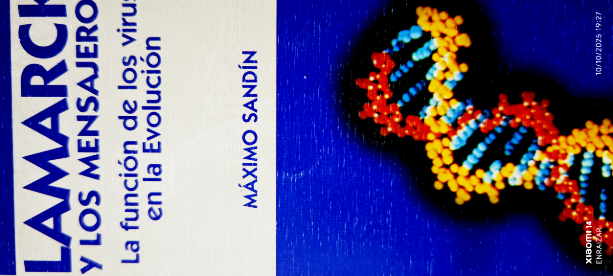
De Ana María Oliva, la otra protagonista que nos falta conozco menos, aunque en esta ocasión aparecerá en los dos videos.
Las tres estuvieron muy valientes y espléndidas durante esos años de oscuridad, de confinamientos y de ese gran experimento que fue la inoculación universal.
Como verás, no suelo seguir canales... me interesan temas y personas en concreto.
---
>I know less about Ana María Oliva, the other protagonist we haven't mentioned yet, although she will appear in both videos this time.
>All three were very brave and splendid during those years of darkness, confinement, and that great experiment that was universal inoculation.
>As you can see, I don't usually follow channels... I'm interested in specific topics and people.
https://www.youtube.com/live/Kc-m0O33UfQ?si=lZQEjaMtPAwhdsVp Fuente/source
Si el primer video es una tertulia entre amigas, el segundo vídeo es otro video entre amigas.
En esta ocasión se cuestiona la proyección que se hace sobre la naturaleza de características de la humanidad actual: crueldad e insolidaridad.
Muy interesante es su crítica al determinismo genético. El genoma, que podría ser como una gran biblioteca en la que encuentran unos libros llamados genes, no es [estático](https://www.sciencedirect.com/science/article/abs/pii/S0303264721002070).
El genoma, en situaciones de estrés... es una extraña biblioteca en la cual aparecen libros (genes) que no estaban, otros cambian de lugar, algunos modifican su contenido... párrafos se mueven, aparecen páginas nuevas, otras desaparecen... cambios que además en algunas ocasiones se transmiten a la siguiente generación.
En cada reorganización de esta "biblioteca", se abre la posibilidad de que aparezcan nuevas especies.
Para no aburrir, he colocado en primer lugar los videos y después irá una pequeña reflexión relacionada con el contenido de éstos, principalmente del primero.
---
>If the first video is a chat between friends, the second video is another video between friends.
>On this occasion, it questions the projection made about the nature of the characteristics of humanity today: cruelty and lack of solidarity.
>Her critique of genetic determinism is very interesting. The genome, which could be like a large library containing books called genes, is not [static](https://www.sciencedirect.com/science/article/abs/pii/S0303264721002070).
>The genome, in stressful situations... is a strange library in which books (genes) appear that were not there before, others change places, some modify their content... paragraphs move, new pages appear, others disappear... changes that are sometimes passed on to the next generation.
>With each reorganization of this “library,” the possibility of new species appearing opens up.
>To keep things interesting, I have placed the videos first, followed by a brief reflection on their content, mainly the first one.
https://youtu.be/xHUtarMR1E4?si=z_E-L_1d5C_ohgI2
La caída de Darwin / Darwin´s Fall
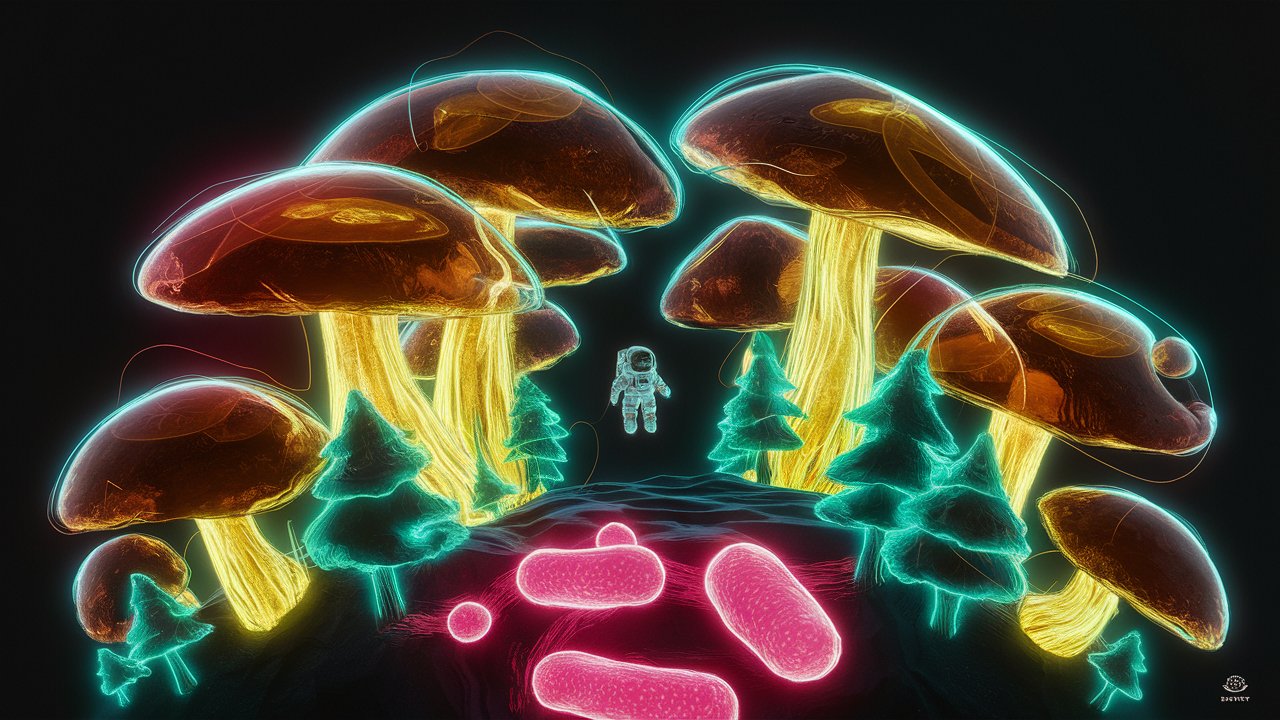
Creo que importa muy poco si el nuevo darwinismo es menos radical y laxo en sus afirmaciones que el original. Que incorpore otras fuentes de evolución como [los transposones](https://pmc.ncbi.nlm.nih.gov/articles/PMC8143547/), la deriva genética o la [trasferencia de genes](https://pmc.ncbi.nlm.nih.gov/articles/PMC6069605/) entre especies diferentes.
Lo verdaderamente importante para mí, es el hecho de que la mayor parte de las personas que habitan este planeta consideran como verdad absoluta una versión de la evolución que parece incuestionable: esa que afirma que el motor de la evolución es la competencia entre individuos en la que sólo sobreviven los más aptos.
Que por tanto, las especies evolucionan compitiendo unas contra otras y los individuos de cada especie entre ellos con el fin de sobrevivir. A esta propuesta la llamaré darwinismo.
---
>I believe it matters very little if neo-Darwinism is less radical and lax in its assertions than the original theory. That it incorporates other sources of evolution such as [transposons](https://pmc.ncbi.nlm.nih.gov/articles/PMC8143547/), genetic drift, or [gene transfer](https://pmc.ncbi.nlm.nih.gov/articles/PMC6069605/) between different species.
>What is truly important to me is the fact that most people on this planet consider as absolute truth a version of evolution that seems unquestionable: the one that states that the driving force of evolution is competition between individuals, in which only the fittest survive.
>Therefore, species evolve by competing against each other and individuals within each species compete with each other in order to survive. I will call this proposal Darwinism.
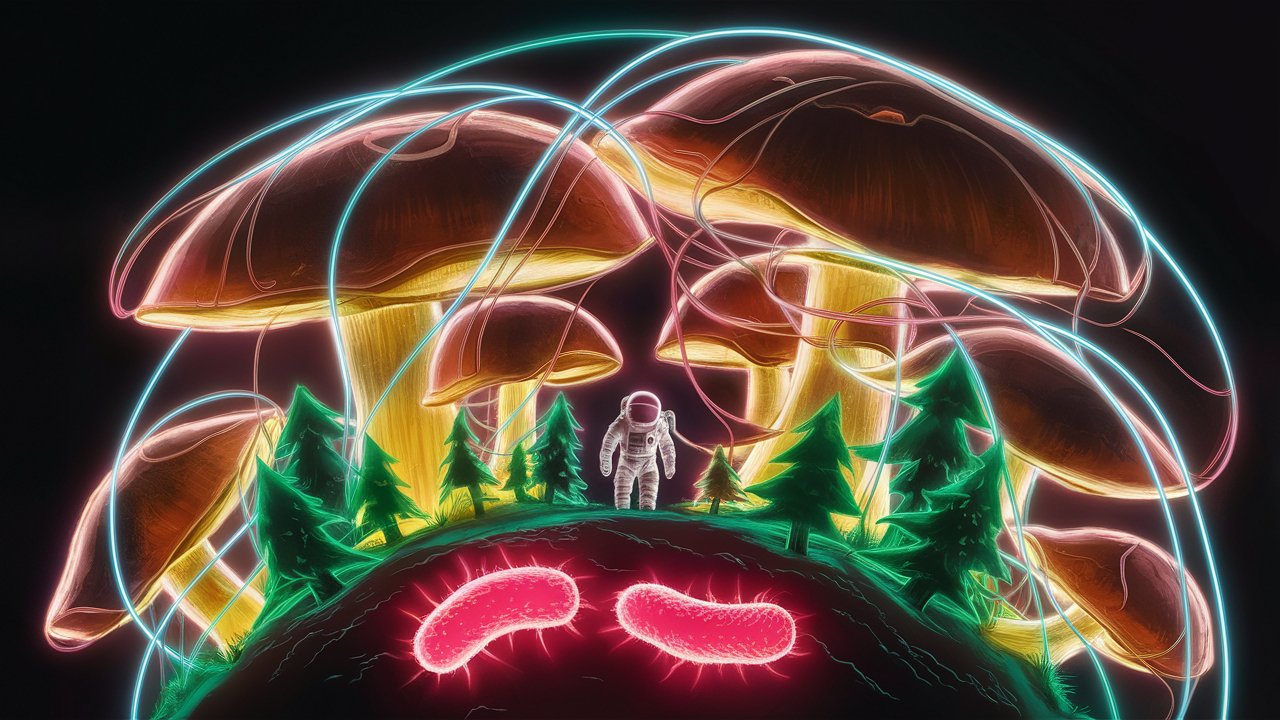
**Darwinismo**
Una hipótesis con un punto de partida: cada ser vivo cuenta con un conjunto de instrucciones, o un programa, que define el desarrollo de ese sujeto.
Esta información se encontraría en lo genes que son los que, en teoría, definen como es cada individuo: alto, rápido, de tez oscura o clara.
Mediante la selección natural, compitiendo unos seres vivos contra otros por unos recursos que son limitados, los más aptos sobreviven (los más fuertes, los que más corren, los que tienen mejor camuflaje, etc) y los menos aptos perecen.
Cuando una mutación genética (una instrucción nueva nacida por azar) da una ventaja, por ejemplo tener pelo blanco en un paisaje nevado, los ejemplares blancos tendrán más posibilidades de sobrevivir que los de color oscuro.
Pequeños cambios (mutaciones) en los genes que se irían acumulando durante periodos de millones de años terminarían por generar nuevas especies.
---
**Darwinism**
>A hypothesis with a starting point: every living being has a set of instructions, or a program, that defines its development.
>This information is found in the genes, which, in theory, define each individual: tall, fast, dark or light-skinned.
>Through natural selection, with living beings competing against each other for limited resources, the fittest survive (the strongest, the fastest, those with the best camouflage, etc.) and the least fit perish.
>When a genetic mutation (a new instruction born by chance) gives an advantage, for example, having white hair in a snowy landscape, white specimens will have a better chance of surviving than dark-colored ones.
>Small changes (mutations) in genes that accumulate over millions of years would eventually generate new species.
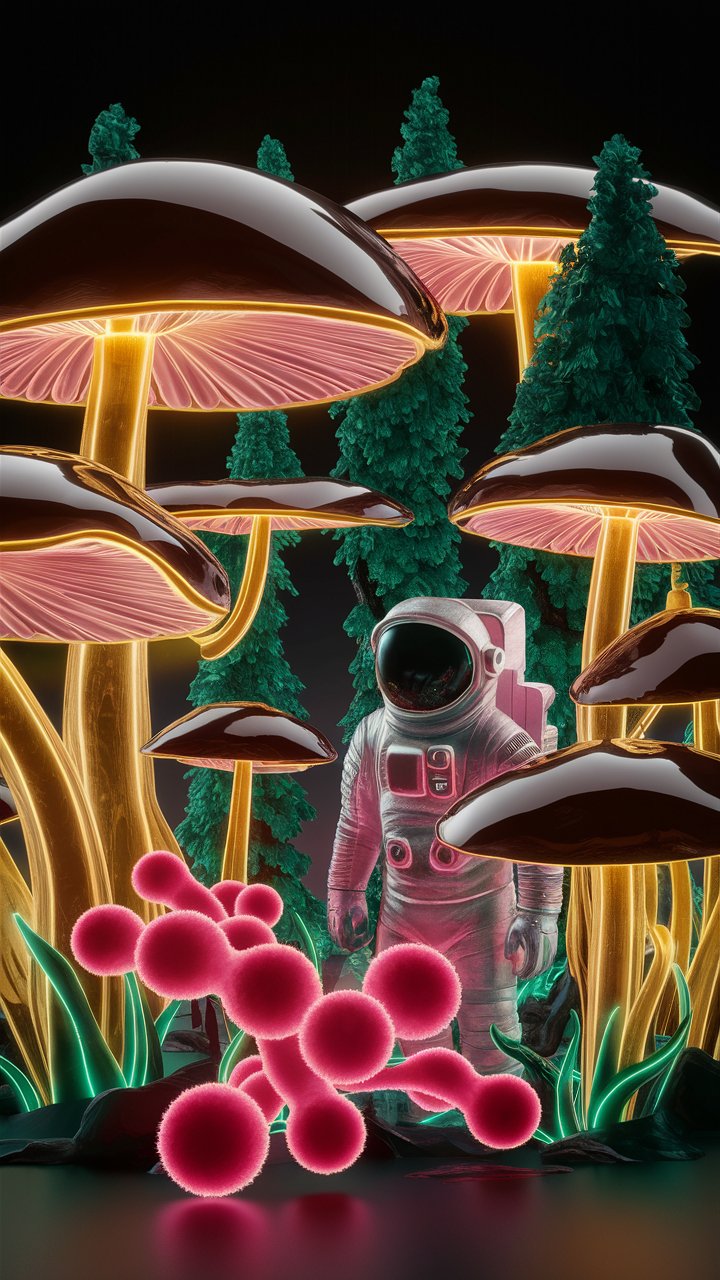 |
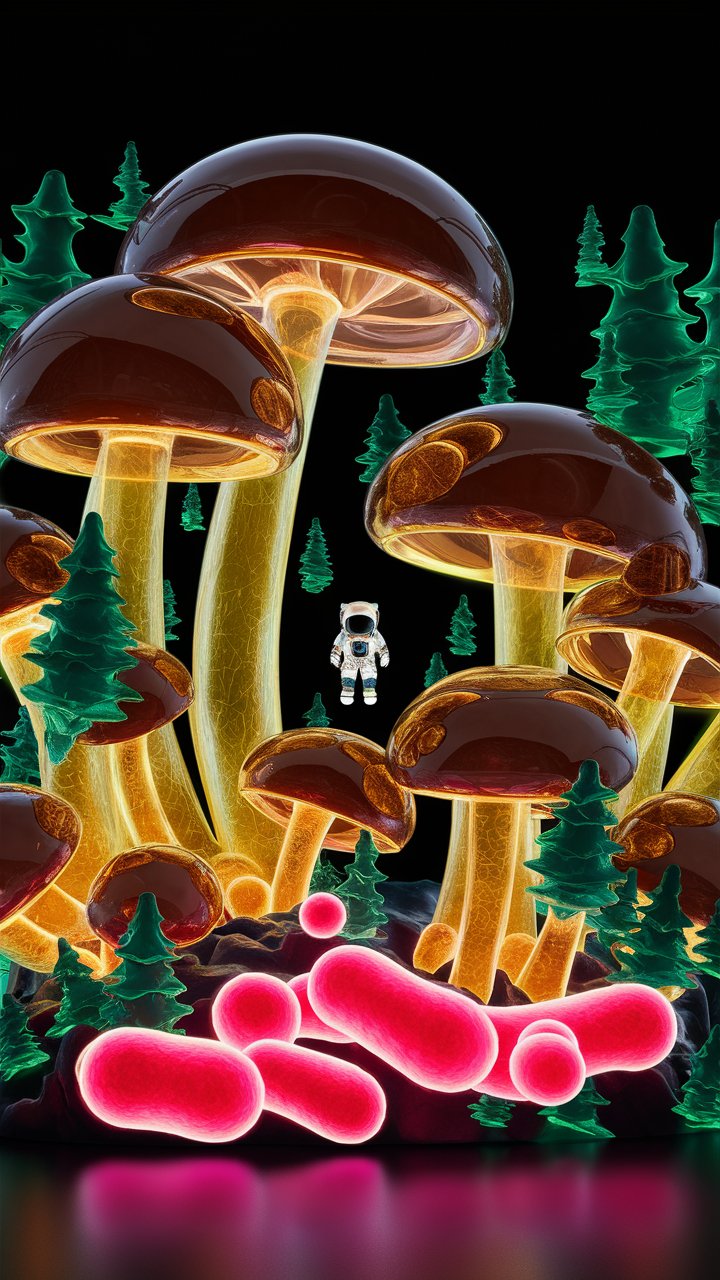 |
|---|---|
Mi experiencia me dice que este cuento que se repite desde la escuela, se repetirá hasta que me muera: la vida evoluciona descartando a los “débiles” y premiando a los más “fuertes”.
La Naturaleza sería, por tanto, un gran campo de batalla en el que sólo sobreviven los “más fuertes”.
**Los virus**
Recuerdo estar, en una de las grandes librerías de Madrid, con mi curiosidad encendida, cuando me fijé en un título: “Lamarck y los mensajeros” de un autor entonces desconocido para mí, Máximo Sandín.
Lo compré y al leerlo, sin entender todas las partes del texto, si llegué a comprender la idea central: el motor de la evolución está más cercano a la cooperación que de la lucha; esto ocurrió sobre el año 1995.
En este libro se ponía en duda la idea de la evolución como algo lento y lineal [Pequeños cambios (mutaciones) que se irían acumulando en periodos de millones de años terminarían por generar nuevas especies].
Por ejemplo, el registro fósil muestra grandes estallidos de vida, la aparición de muchas especies nuevas en periodos muy cortos de tiempo.
---
My experience tells me that this story, which has been repeated since school, will continue to be repeated until I die: life evolves by discarding the “weak” and rewarding the “strong.”
Nature would therefore be a great battlefield in which only the “strongest” survive.
**Viruses**
>I remember being in one of the big bookstores in Madrid, my curiosity piqued, when I noticed a title: “Lamarck y los mensajeros” (Lamarck and the Messengers) by an author then unknown to me, Máximo Sandín.
>I bought it and, although I didn't understand all of the text, I did grasp the central idea: the driving force behind evolution is closer to cooperation than to struggle. This was around 1995.
>This book questioned the idea of evolution as something slow and linear [small changes (mutations) that would accumulate over millions of years would eventually generate new species].
>For example, the fossil record shows great bursts of life, the appearance of many new species in very short periods of time.
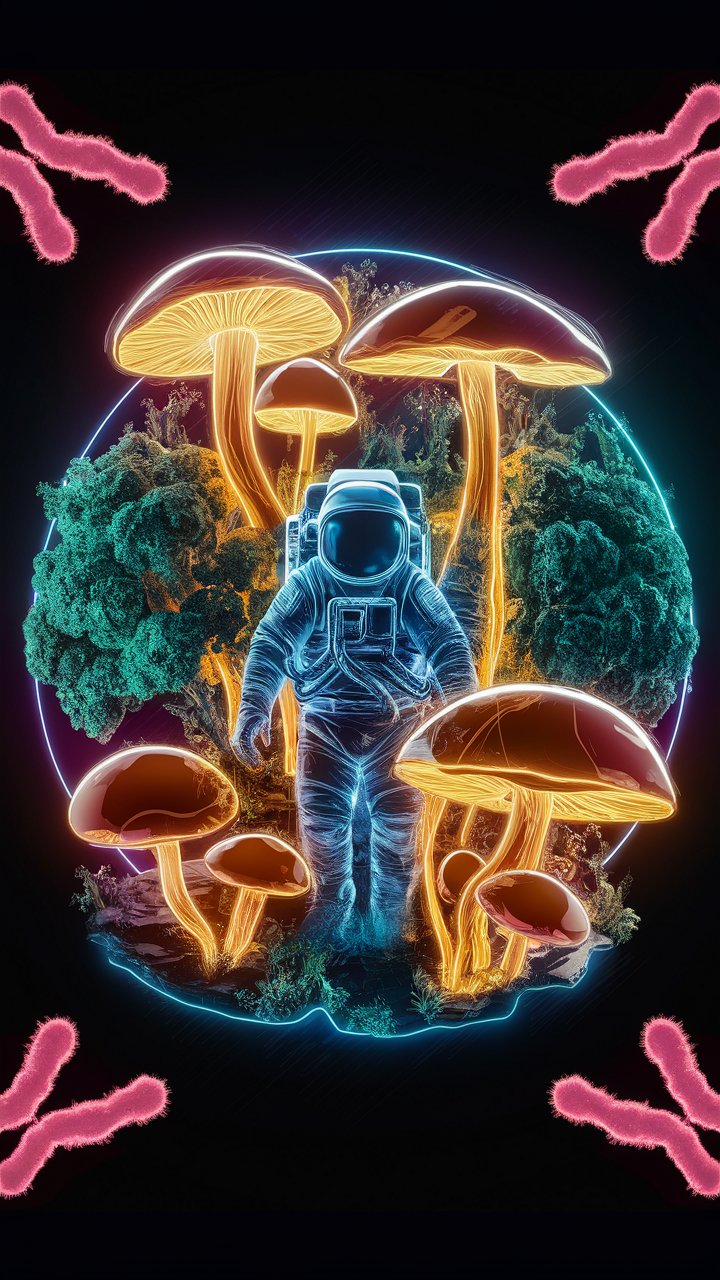 |
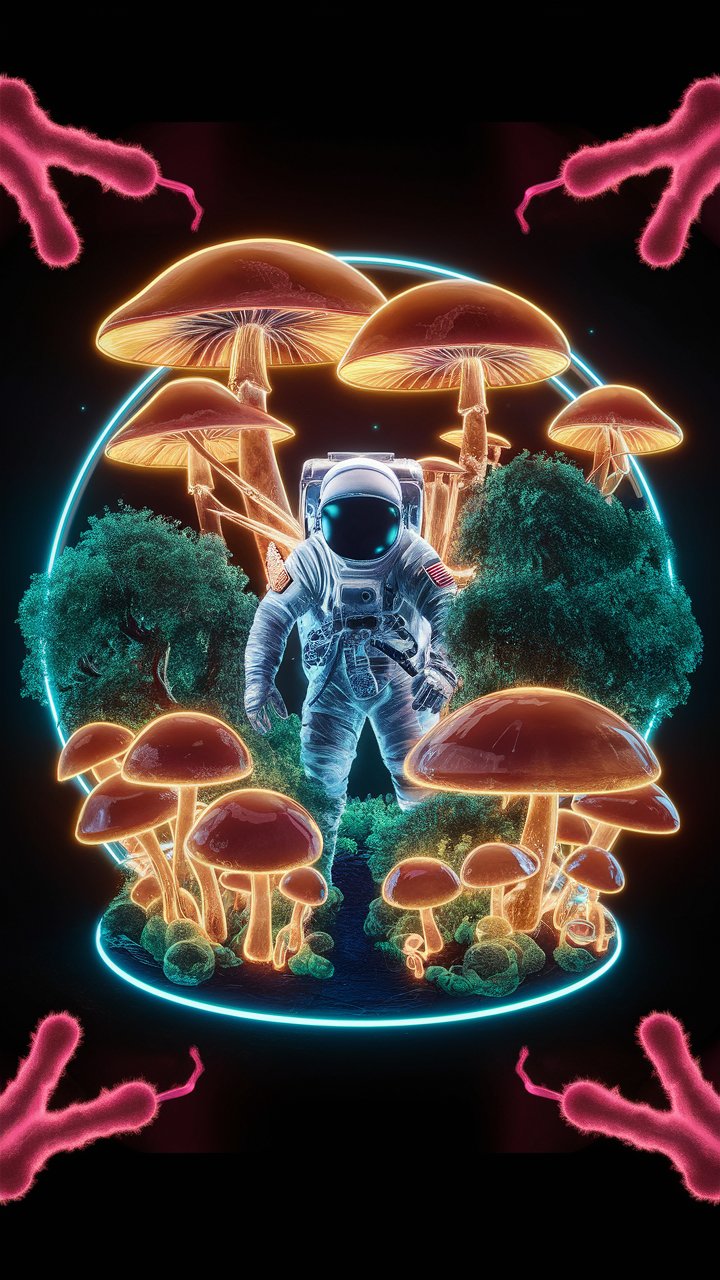 |
|---|---|
Sin embargo, la selección natural de Darwin, es un proceso muy lento, lentísimo.
Esta lentitud tiene una explicación bastante sencilla. Si un herbívoro adquiere la ventaja de ser muy veloz pero es corto de vista, terminará en la tripa de un depredador a pesar de su “ventaja”. Por tanto, no transmitiría el "gen" de la velocidad a su especie.
Quizás, pueda ocurrir que un macho blanco e invisible en un paisaje nevado, no guste a la hembras por lo que tampoco transmitirá la ventaja de su camuflaje a su especie.
Un proceso tan lento que uno de los grandes biólogos del siglo XX, [R. Lewontin](https://www.science.org/doi/10.1126/science.abl5430), decía:
>*El tiempo necesario para que una mutación del tipo justo se verifique y alcance una frecuencia tal que llegue a ser significativa en el ámbito del proceso de selección es aproximadamente el tiempo de duración de la especie.*
#
Ante la imposibilidad de explicar la aparición de nuevas especies por el mecanismo de la “selección natural”, desde la misma biología, surge un nuevo "paradigma": la tercera vía.
Por el momento, se trata sólo de un montón de científicos con ideas diversas aunque con un punto en común: Darwin estaba equivocado o al menos algunos darwinistas como Richard Dawkins lo están.
---
>However, Darwin's natural selection is a very slow, extremely slow process.
>There is a fairly simple explanation for this slowness. If a herbivore acquires the advantage of being very fast but is short-sighted, it will end up in the stomach of a predator despite its “advantage.” Therefore, it would not pass on the “gene” for speed to its species.
>Perhaps a white male that is invisible in a snowy landscape may not be liked by females, so it will not pass on the advantage of its camouflage to its species either.
>This process is so slow that one of the great biologists of the 20th century, [R. Lewontin](https://www.science.org/doi/10.1126/science.abl5430), said:
>*The time required for a mutation of the right type to occur and reach a frequency that is significant in the context of the selection process is approximately the lifetime of the species. *
#
>Faced with the impossibility of explaining the emergence of new species through the mechanism of “natural selection,” a new “paradigm” has emerged from biology itself: the third way.
>For the moment, it is just a bunch of scientists with diverse ideas but with one thing in common: Darwin was wrong, or at least some Darwinists like Richard Dawkins are.
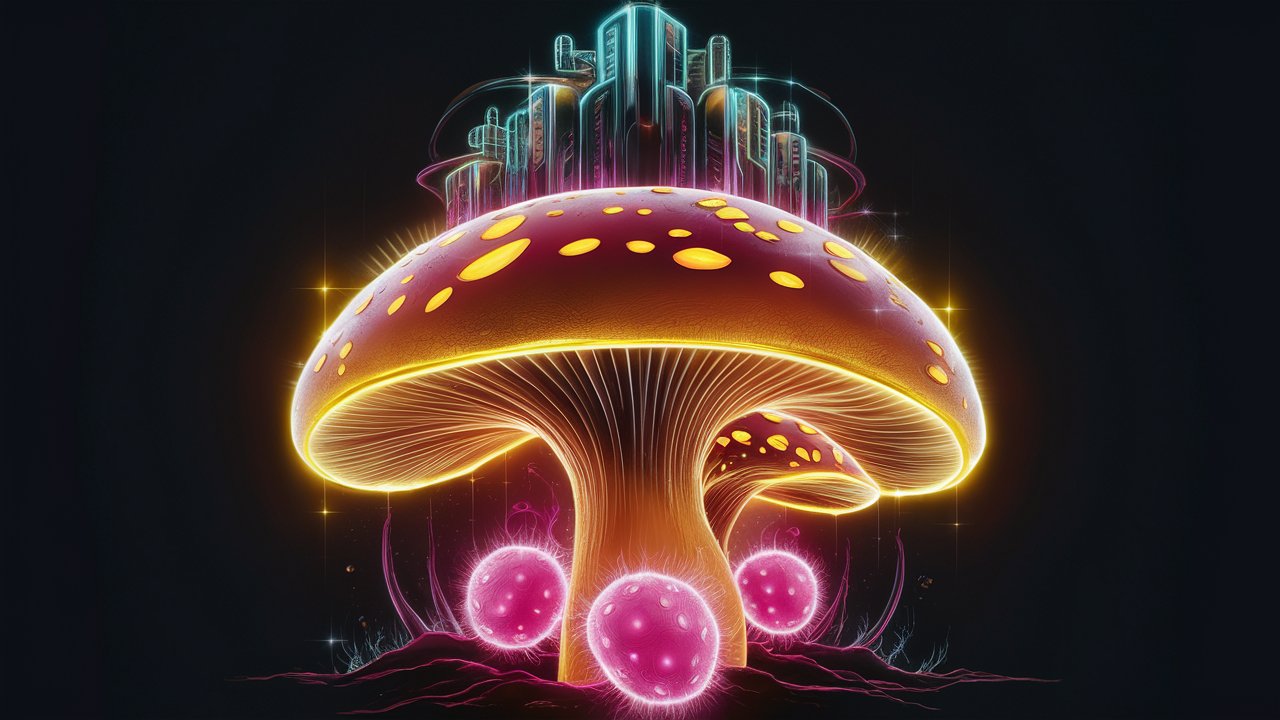
[La tercera vía](https://www.thethirdwayofevolution.com/) con toda probabilidad nació con el trabajo de [Lynn Margullys](https://www.rtve.es/play/videos/redes/redes-saltos-evolucion/2359188/). En el que se exponía la importancia de la cooperación en el desarrollo de la vida en la Tierra.
Como ejemplo, las células con núcleo, como las nuestras, se formaron por simbiosis.
Diferentes tipos de bacterias se unieron dentro del cuerpo de una bacteria más grande formando las células eucariotas, el tipo de células que forman nuestro cuerpo.
---
>[The third way](https://www.thethirdwayofevolution.com/) most likely originated with the work of [Lynn Margullys](https://www.rtve.es/play/videos/redes/redes-saltos-evolucion/2359188/). In it, she explained the importance of cooperation in the development of life on Earth.
>As an example, cells with nuclei, such as ours, were formed by symbiosis.
>Different types of bacteria joined together inside the body of a larger bacterium, forming eukaryotic cells, the type of cells that make up our bodies.
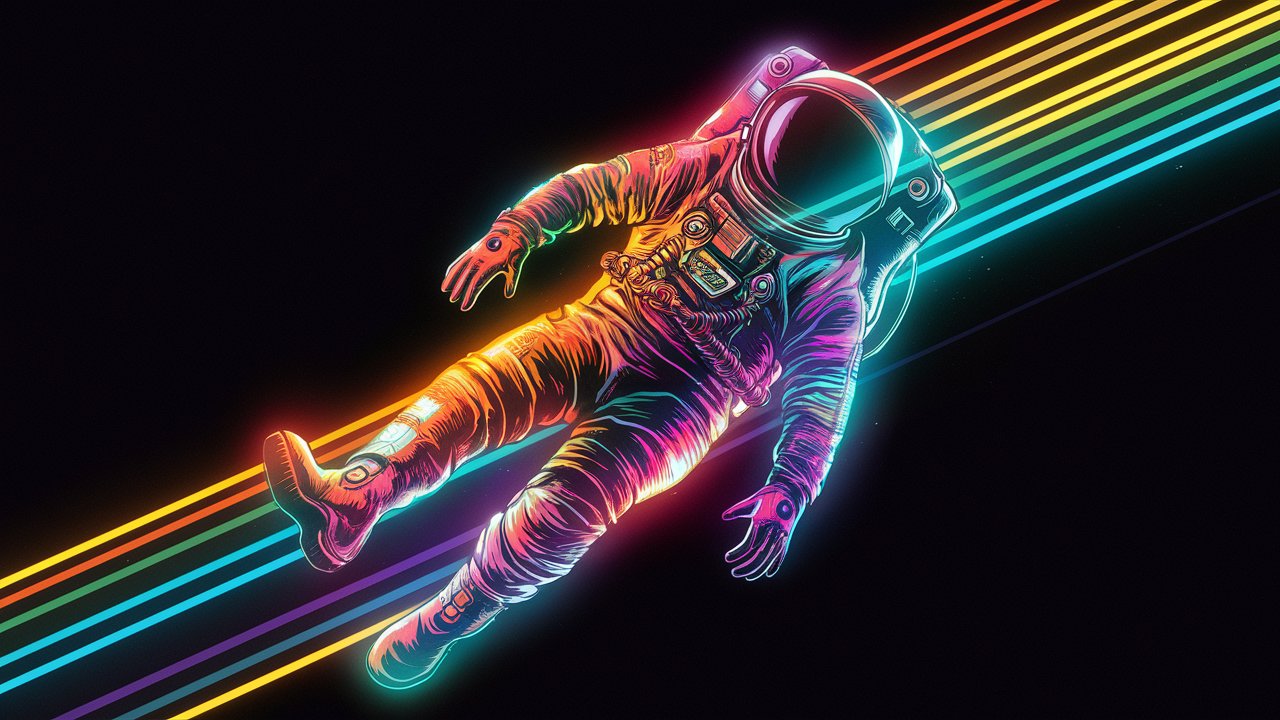
Podemos continuar hablando de simbiosis. En nuestro cuerpo habitan billones de virus y bacterias sin los cuales [no estaríamos vivos](https://www.bbc.com/mundo/noticias-56046216).
No me quiero perder. Si la “selección natural” no explica la aparición de las especies. ¿Qué nos queda para explicar la gran variedad de especies